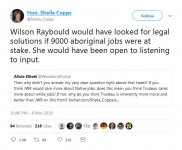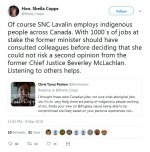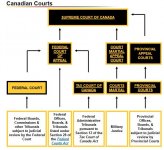100%- except for an injunction, there's no way to prevent a snap election if the GG approves it. It's unlikely the GG would not and the government would then be in a tough position. *
The PPS is generally an in house org, but with about 450 extra hired gun "agents" for specialist niche prosecutions or drug court prosecutions. The DoJ generally only hires external counsel for opinions for advice about the laws of another country, or where for some rare circumstance they are in a conflict of interest. ( ie the Minister and minions are accused or under investigation and require counsel themselves for legal actions they've initiated or advised on). Very rare, but some ( certainly not all) law suits for malicious prosecution come to mind.
Government agencies, like CBC, NEB etc, have in house counsel but routinely hire external counsel.
*Wikipedia
"When introducing the legislation, Harper stated that "fixed election dates prevent governments from calling snap elections for short-term political advantage. They level the playing field for all parties and the rules are clear for everybody."[7] However, despite the amendments to the legislation, the prime minister is still free to request an election at any time. As the Bill C-16 amendments to the Canada Elections Act clearly state "Nothing in this section affects the powers of the Governor General, including the power to dissolve Parliament at the Governor General's discretion", the change effectively altered only the maximum duration of a parliament by ensuring that it ends no later than October of the fourth calendar year after its commencement, while leaving the possibility of an earlier end unaffected.[4]
This situation was illustrated by the dissolution of parliament at PM Harper's request on September 7, 2008. This led Democracy Watch to initiate proceedings in federal court against the Crown-in-Council, the Prime Minister of Canada, and the Governor General of Canada, challenging the decision to call an election prior to the fixed election date. Judge Michel M.J. Shore dismissed the matter, saying the applicants who launched the suit "do not demonstrate a proper understanding of the separation of powers," since "[t]he remedy for the applicant's contention is not for the Federal Court to decide, but rather one of the count of the ballot box".[8] The court effectively found that the fixed election dates were not binding on the prime minister or legally enforceable by the courts."





